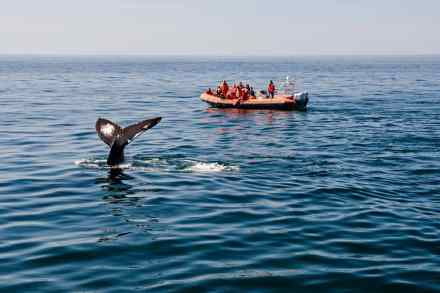On the road in Atlantic Canada
‘There, that’s what we want to see,’ shouts our captain, pointing. My head flings back as the Zodiac flies through the open water towards a plume of ocean spray. Metres from our boat, there’s a breach, then a tail slap and more spray. Two giant humpback whales. ‘Meet Flip and Flop,’ the captain announces smugly. Flip and Flop glide only inches away, dwarfing our boat. They perform to wails and applause from a grateful audience. I am in awe and keep my camera tucked firmly in my bag — I want to enjoy every moment. The spectacle lasts for 40 minutes or so before we bid farewell and head back















